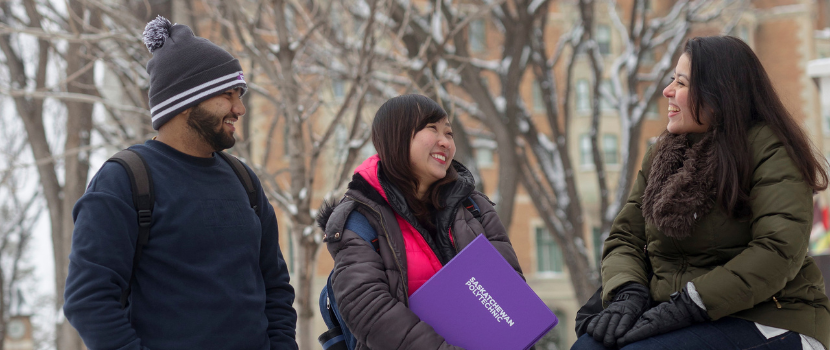
Welcome to Saskatchewan Polytechnic! Whether you are a new or returning international student, we know you’ll have questions. This guide is a great place to start. It includes important pre-arrival information, as well as info to help you get settled. It also contains topics relevant during your studies and info on possible immigration options you can pursue once you complete your studies.
Before you begin your studies
Step 1 – Understand immigration rules and apply for study documentation
Preparing to study abroad is a big deal. Your first step is understanding the rules and regulations for studying in Canada.
Step 2 – Complete essential pre-arrival tasks
Once you have your study documentation in order, it is important to complete some essential pre-arrival tasks.
Step 3 – Settle in before classes begin
In the weeks between arriving in Canada and starting your program, take steps to get settled and comfortable in your new environment.
While you study
Step 4 – Stay on top of immigration requirements
It is important to understand and stay on top of IRCC requirements throughout your time as an international student.
Step 5 – Succeed in your academic life
As an international student, you will have come from a different academic environment and your experiences of academic expectations may also differ from the Canadian context. This section will help you prepare for academic success at Sask Polytech.
Step 6 – Explore and have fun!
Be sure to take advantage of everything that Saskatchewan has to offer while you are studying in Canada!
Contact us
We are here to help make your educational experience personally and academically rewarding so please do not hesitate to contact our office. We look forward to meeting you!
Contact International Education.

